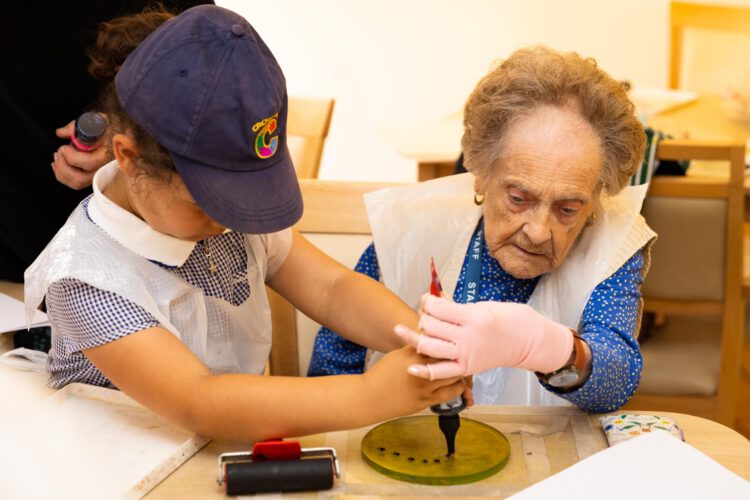What Is Nursing Care in a Care Home?

Choosing the right type of care for a loved one can feel overwhelming, especially when you are trying to understand the difference between residential care, dementia support and nursing care. Many families who contact care homes for the first time already feel unsure about which option is best. If you are researching care for a family member in Romford or the wider Essex area, this guide will help you understand exactly what nursing care involves, who it is designed for and how it can support long term wellbeing.
What Is Nursing Care?
Nursing care is a specialist type of long term care provided for people who have ongoing medical needs that require regular monitoring from qualified nurses. Unlike residential care, which focuses mainly on personal care and day to day support, nursing care includes continuous clinical oversight as well as help with everyday living.
In a nursing care home, residents receive support from registered nurses who are trained to manage health conditions, administer medication, monitor symptoms and respond quickly to any changes. This level of support brings peace of mind to both residents and families, especially when health needs become more complex.


Who Is Nursing Care Suitable For?
Many different health conditions can lead a person to require nursing care. It is often recommended for individuals who have needs that go beyond what traditional residential care can safely manage. These may include:
- Long term and progressive illnesses
- Recovery from stroke or neurological conditions
- Mobility issues that require professional oversight
- Advanced dementia requiring clinical support
- Oxygen therapy or specialist medication routines
- Palliative and end of life care
- Complex needs after hospital stays
Families usually notice that their loved one is beginning to need more frequent medical attention, additional night time support or help with symptoms that change from week to week. When these needs increase, nursing care often becomes the safest and most appropriate option.
How Nursing Care Differs From Residential Care
Residential care offers essential support such as washing, dressing, meals and social activities. For many people, this level of support is enough to maintain independence and wellbeing.
Nursing care includes all of this but also adds:
- A team of registered nurses on site
- Clinical monitoring throughout the day and night
- Close partnership with GPs and healthcare professionals
- Advanced medication management
- Specialist support for long term conditions
Because qualified nurses are always available, nursing care homes are equipped to deal with health changes quickly. This often prevents avoidable hospital admissions and ensures that residents remain comfortable and well supported.
For families, this creates a sense of reassurance and confidence that their loved one's health is being monitored with the right expertise.
What Nursing Care Typically Includes
Every person has a personalised nursing care plan shaped around their unique needs, preferences and medical requirements. A high quality nursing care home will offer a combination of clinical expertise, daily support and meaningful lifestyle activities. Typical support includes:
Specialist Health Monitoring
Registered nurses check symptoms, keep track of vital signs and observe how conditions develop. They notice subtle changes that may not be obvious to families and can adjust care plans in collaboration with healthcare professionals.
Medication Management
Many residents in nursing care take a variety of medications. Nurses handle all administration safely, whether that involves tablets, injections, patches or time specific medication schedules. They also review how each person responds and work with GPs to make changes when needed.
Support With Mobility and Physical Rehabilitation
Nursing care residents who have limited mobility or have experienced a decline in physical strength receive tailored support. This may include safe movement assistance, exercises recommended by physiotherapists or help with specialist equipment.
Support for Dementia and Cognitive Needs
People living with dementia sometimes require nursing care as the condition progresses. Nurses understand changing behaviours, memory loss and symptoms associated with later stage dementia. They help residents feel calm, safe and understood, while also offering clinical oversight where necessary.
Palliative and End of Life Care
Nursing care plays a vital role in ensuring dignity, comfort and emotional support during end of life care. Nurses manage pain relief, help families understand what to expect and provide compassionate care throughout.
Daily Living Support
Although the nursing element is essential, personal care remains just as important. Residents receive respectful assistance with bathing, dressing, meals, hydration and continence. Care is always provided with a person centred approach that values choice and independence.



The Person Centred Approach in Nursing Care
Modern nursing care homes focus on supporting the whole person, not just their medical needs. Person centred care means that each resident is recognised as an individual with a unique history, personality and lifestyle.
A person centred nursing care plan includes:
- Preferences around routines
- Life history and personal background
- Favourite hobbies and interests
- Religious or cultural needs
- Emotional wellbeing and communication preferences
This approach ensures that residents feel listened to, valued and involved in decisions about their care. For people with dementia or long-term illnesses, this can be especially comforting.
Lifestyle, Community and Wellbeing in Nursing Care Homes
Families are often surprised to learn how vibrant life in a nursing care home can be. It is not an overly clinical environment. A good nursing care home offers a balance of professional healthcare with a warm, community feel.
Residents can enjoy:
- Comfortable bedrooms, many with private en suites
- Access to beautiful landscaped gardens
- Freshly prepared meals that support nutrition and wellbeing
- Individual and group activities
- Gentle fitness sessions and movement support
- Opportunities for social interaction and friendships
- Regular visits from loved ones
These elements support emotional health as much as physical wellbeing. Many people feel happier when they no longer have to worry about managing daily tasks or medical issues at home.


When Is Nursing Care the Right Choice?
Families often recognise signs that indicate their loved one may need nursing care. These can include:
- Frequent hospital visits
- Difficulty managing medication
- Declining mobility or increased falls
- Changes in mood or behaviour
- Complex symptoms that need professional oversight
- Increased nighttime needs
If you have begun to notice these patterns, it may be time to consider a nursing care home. Speaking to a GP or care home manager can help you understand the level of support required.
Why Families Choose Willows Care Home for Nursing Care
At Willows Care Home in Romford, residents benefit from high quality nursing care delivered with compassion, warmth and clinical expertise. The home provides personalised care plans, 24 hour support from registered nurses and a calm, welcoming environment where residents can feel safe and valued.
Families appreciate the wide range of amenities that contribute to a meaningful daily life, including comfortable en suite bedrooms, private outdoor spaces, restaurant style dining and a programme of engaging activities that encourage social connection.
The team at Willows Care Home works closely with families from the moment they get in touch. Whether you are exploring nursing care for the first time or are ready to arrange a visit, the staff are always happy to offer guidance, answer your questions and help you feel confident in your decision.
If you are considering nursing care for a loved one in Romford or Essex, get in touch with our friendly team today.



